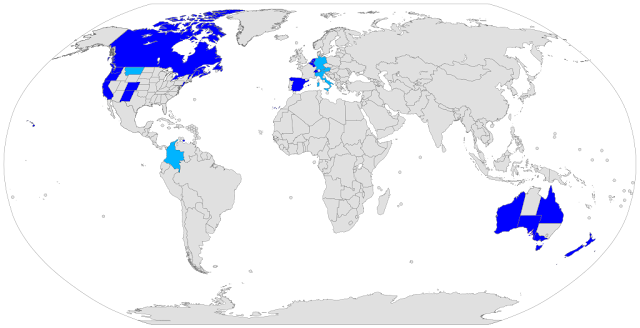Robin Williams changed the way How we talk about Mental Health
A decade ago, on August 11th 2014, Hollywood actor Robin Williams took his own life at age 63 following a long battle with neurological issues. His death sparked a shift in the conversation around mental health in the entertainment industry, leading to celebrities speaking out about their own struggles.
It is important for me to remind - that Williams was a legendary comedian and Oscar-winning actor -remembered for his iconic roles in films like Aladdin, Good Will Hunting, Mrs. Doubtfire, and Dead Poets Society. His career took off with the sitcom Mork & Mindy in 1978 (a sitcom I loved to watch as a young boy), and he won a Grammy for Best Comedy Album in 1979 after attending Juilliard on a scholarship and starting his stand-up career in San Francisco.
Even Williams was an esteemed comedian and Oscar-winning person - he faced daunting challenges due to serious neurological issues. His battles with Parkinson's disease, Lewy body dementia, and financial troubles led him to undesired roles, fatigue, substance abuse, and adverse impacts on his career.
Nevertheless, despite his struggles, he continued to perform and left behind a rich artistic legacy, receiving numerous awards for his outstanding contributions to acting and comedy. His journey has generated important conversations and awareness in the industry and beyond about mental health and the challenges faced by those struggling with similar issues.
His passing sparked a significant shift in the entertainment industry, prompting celebrities to openly discuss and share their mental health struggles.
Lisa Jakub, who acted alongside Williams in Mrs. Doubtfire, attested that he was one of the first to engage her in discussions about mental health issues and demonstrated compassion by supporting the hiring of local veterans on set.
Quote by Robin Williams I like to share and ask you to think about ...
"No matter what people tell you, words and ideas can change the world."
"You're only given a little spark of madness. You mustn't lose it."
“You will have bad times, but they will always wake you up to the stuff you weren't paying attention to.”
“Please, don't worry so much. Because in the end, none of us have very long on this Earth. Life is fleeting. And if you're ever distressed, cast your eyes to the summer sky when the stars are strung across the velvety night. And when a shooting star streaks through the blackness, turning night into day... make a wish and think of me. Make your life spectacular.”
“Everyone you meet is fighting a battle you know nothing about. Be kind. Always.”
I will not miss and end this article without writing a few thoughts about depression, and suicide - and the relationship between neurological conditions, depression, and suicide
A study published in the Journal of the American Medical Association in February 2020 highlighted that individuals with neurological conditions, such as Parkinson’s disease (PD) and Lewy body dementia (LBD), are at a heightened risk of suicide. Depression is a common symptom experienced by those living with PD and LBD.
For individuals dealing with Parkinson's, a comprehensive, team-based healthcare approach that incorporates a mental health professional is particularly beneficial. This ensures that if depression or thoughts of suicide arise, there is an established relationship with a trusted professional to provide essential support. It's never too late to introduce a mental health professional to your care team if needed.
If you or a loved one is struggling with thoughts of suicide, it's important to take action:
- Find suitable resources: There are 24-hour suicide prevention hotlines available in nearly every region and country, providing valuable support.
- Seek professional help: It's essential to reach out and find a psychologist, therapist, counselor, or social worker to lean on for needed assistance.
- Stay engaged: Maintaining connections with family and friends, scheduling regular phone calls, and seeking out support groups or wellness classes can help prevent feelings of isolation often experienced by those with Parkinson's.
- Build a support network: Consider joining a local or online support group to connect with others who understand and can provide support.
- For care partners or family members, being aware of suicide warning signs and learning how to offer appropriate assistance is crucial.
List of suicide crisis lines
Germany
- 112 is the national emergency number for fire and ambulance in Germany.
- 110 is the national emergency number for police.
- Telefonseelsorge (http://www.telefonseelsorge.de/) (24/7, no cost): 0800 111 0 111, or 0800 111 0 222, or 116 123, or by online chat at https://online.telefonseelsorge.de/
- International Helpline Berlin provides emotional support to people in Germany who are in distress or at risk of suicide. Tel: 030-44 01 06 07
- Nummer gegen Kummer (Elterntelefon) offers free and anonymous telephone advice throughout Germany. The line is available from Monday to Friday from 9 a.m. to 5 p.m., Tuesday and Thursday until 7 p.m. Tel: 0800 111 0 550
United States
- 911 is the national emergency number in the United States.
- 211 is a phone number in the United States for people in crisis who need emergency referrals to social and community services but are not experiencing an immediate life-threatening emergency. Services available vary by state.
- The 988 Suicide & Crisis Lifeline (https://988lifeline.org/) is a 24-hour, toll-free, confidential suicide prevention hotline available to anyone in suicidal crisis or emotional distress. It provides Spanish-speaking counselors, as well as options for deaf and hard of hearing individuals. It is only available in the United States. A 24-hour online chat service is also available.
- The 988 Suicide & Crisis Lifeline can be reached at 988.
- The Lifeline's previous number, 1–800–273–8255, can still be dialed at anytime.
- Nacional de Prevención del Suicidio: 1–888–628–9454
- Deaf or Hard of Hearing: Use your preferred relay service or dial 711 then 988
- The Veterans Crisis Line (https://www.veteranscrisisline.net/) is a 24-hour, toll-free hotline that provides phone, webchat, and text options available to military veterans and their families. It provides options for deaf and hard of hearing individuals.
- The Veterans Crisis Line can be reached at 988or 1–800–273–8255, followed by Pressing 1
- The hotline can also be reached by texting to 838255.
- It can additionally be reached by online chat on the Veterans Crisis Line website.
- The Crisis Text Line (crisistextline.org) is a 24/7, nationwide crisis-intervention text-message hotline.
- The Crisis Text Line can be reached by texting HOME to 741–741.
- Samaritans USA (http://www.samaritansusa.org/) is a registered charity aimed at providing emotional support to anyone in distress or at risk of suicide throughout the United States.[9]
- The Trevor Project (http://www.thetrevorproject.org/) is a nationwide organization that provides a 24-hour phone hotline, as well as 24-hour webchat and text options, for LGBTQ+ and questioning youth.
- The TrevorLifeline can be reached at 1–866–488–7386.
- TrevorChat can be found at https://www.thetrevorproject.org/get-help/
- TrevorText can be reached by texting START to 678–678
- Trans Lifeline (https://www.translifeline.org/) is a nonprofit organization that is created by and for the transgender community, providing crisis intervention hotlines, staffed by transgender individuals, available in the United States and Canada.
- The Trans Lifeline can be reached at 1–877–565–8860.
- The Youthline (https://www.theyouthline.org/) is a free teen-to-teen crisis support and help line run by a nonprofit. Between the hours of 4 -10 pm PST daily, teens are available for peer support via phone and text. Otherwise, the line is staffed by adult crisis responders 24/7.
- CALL (24/7): 877-968-8491
- TEXT (4–10 pm PST): 'teen2teen' to 839863
- CHAT (4–10 pm PST) https://www.theyouthline.org/






Comments
Post a Comment